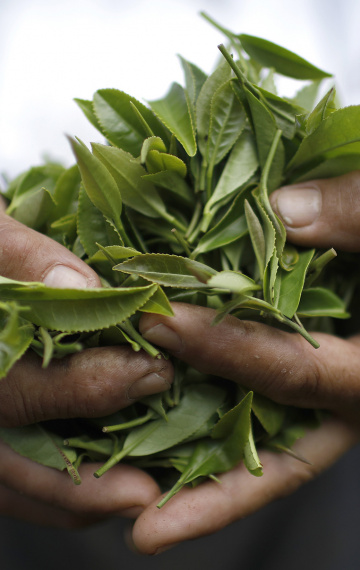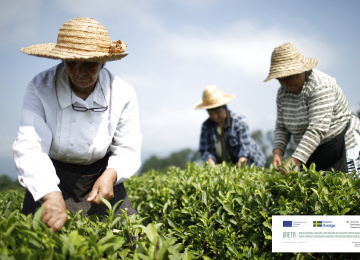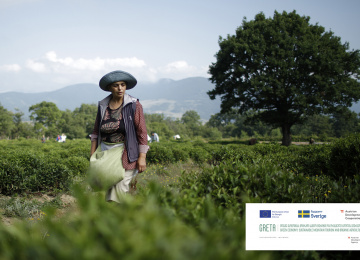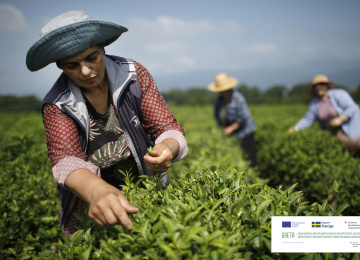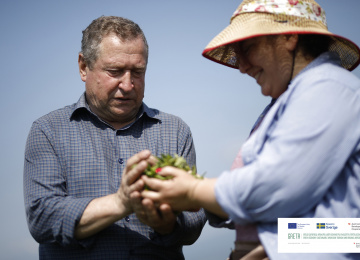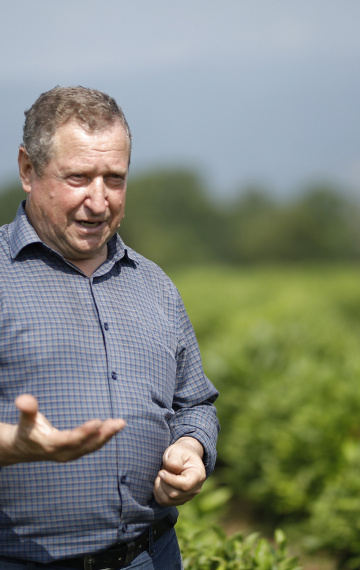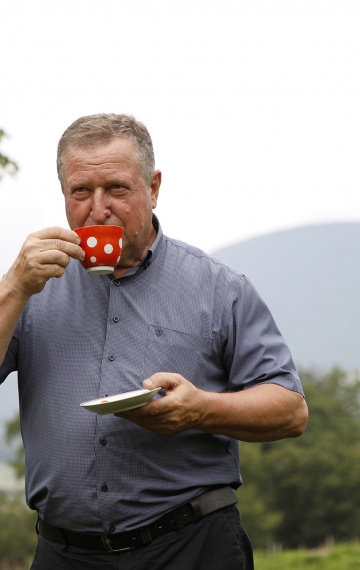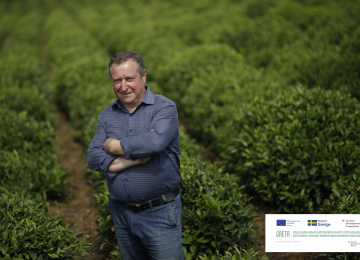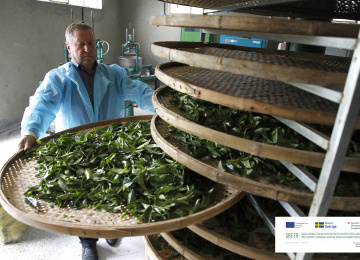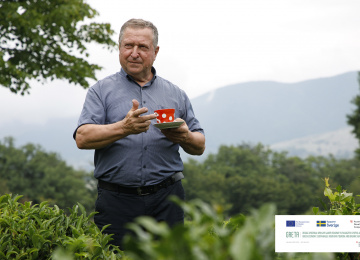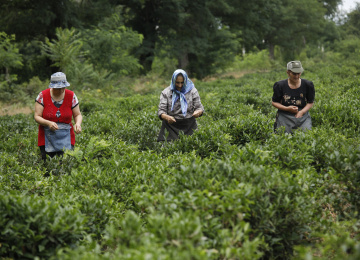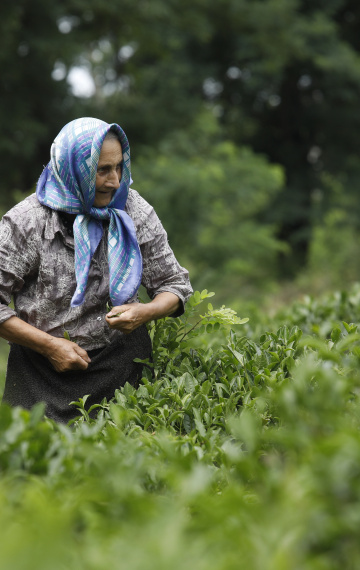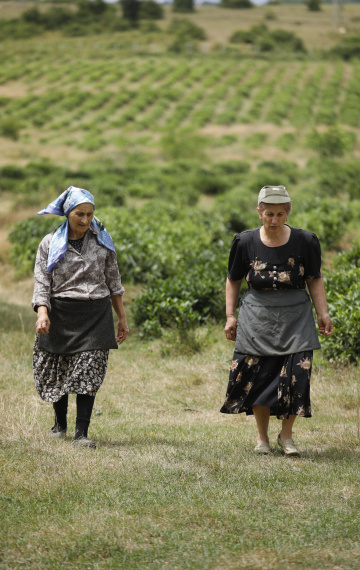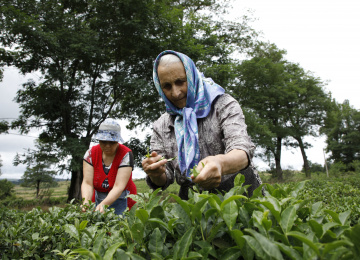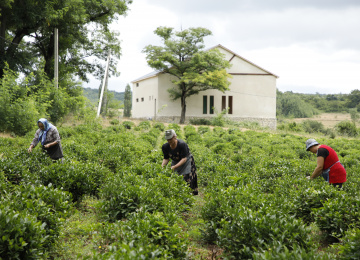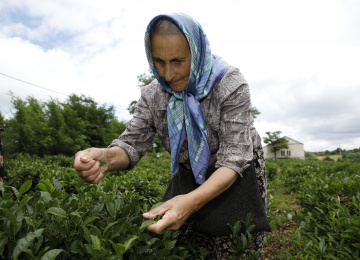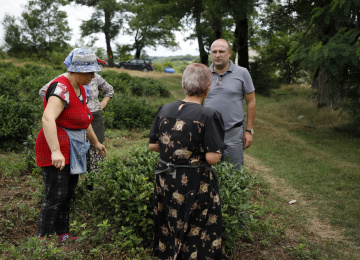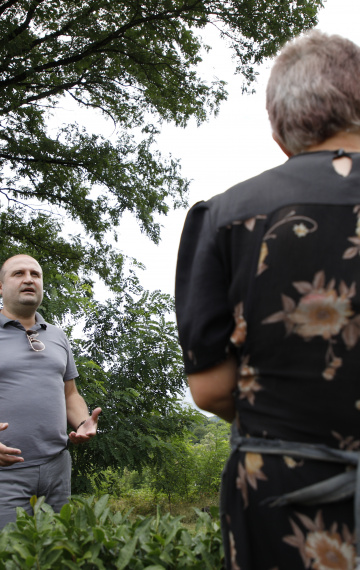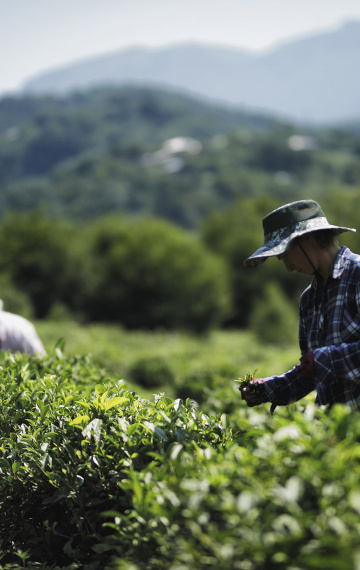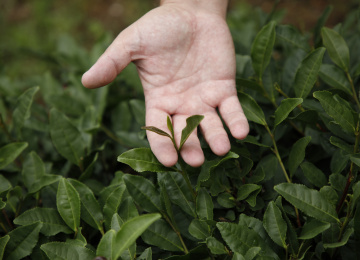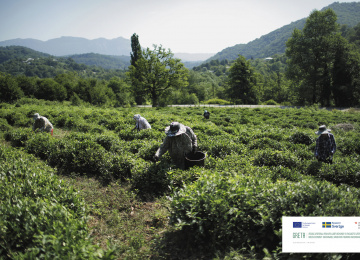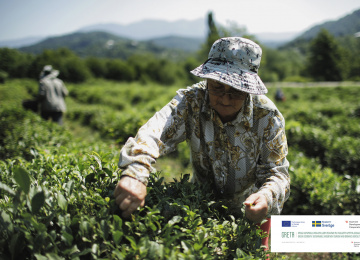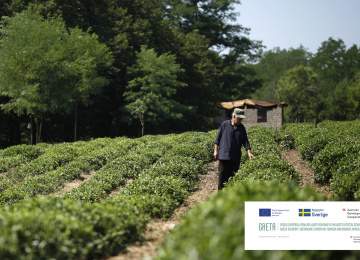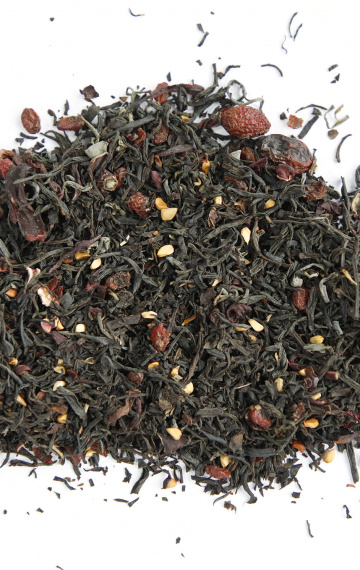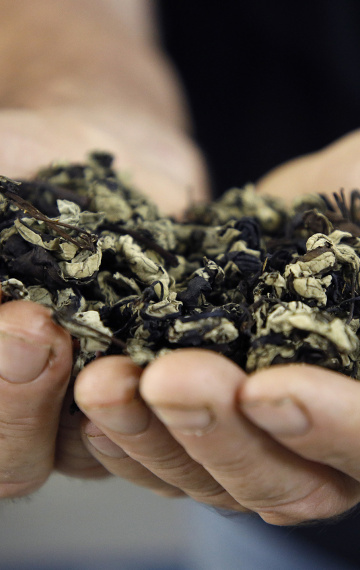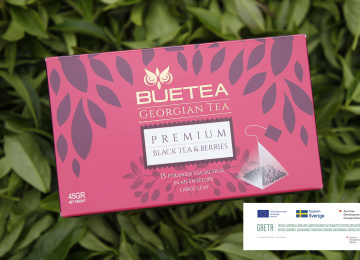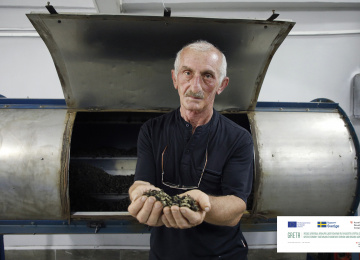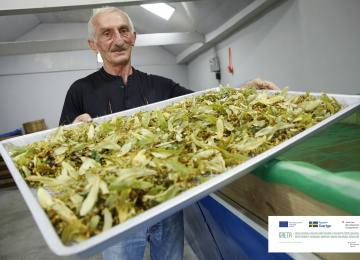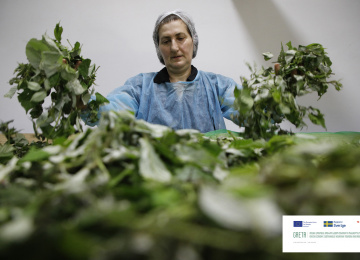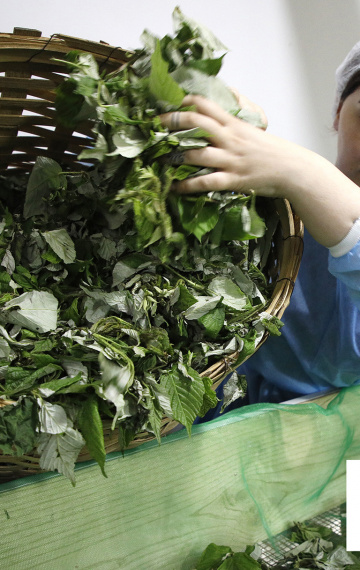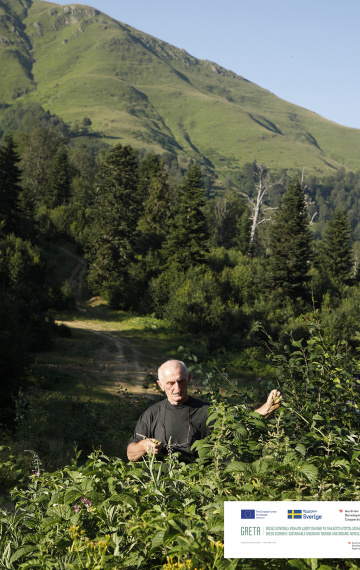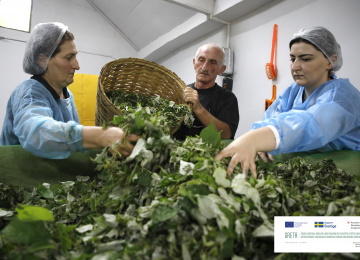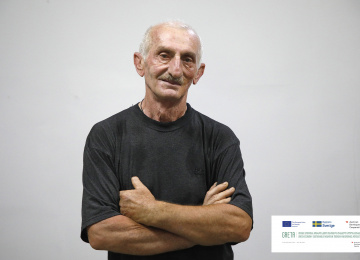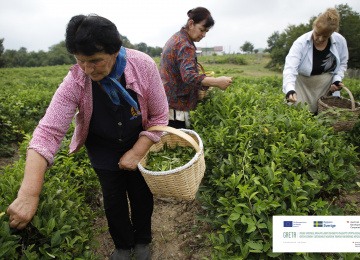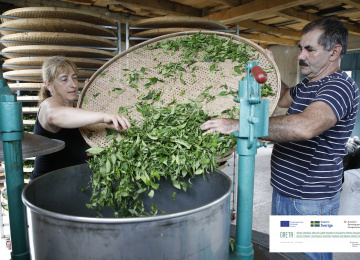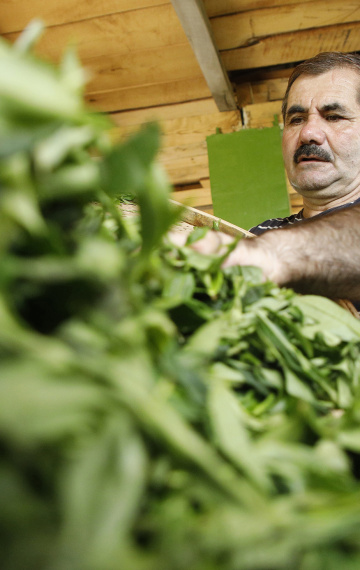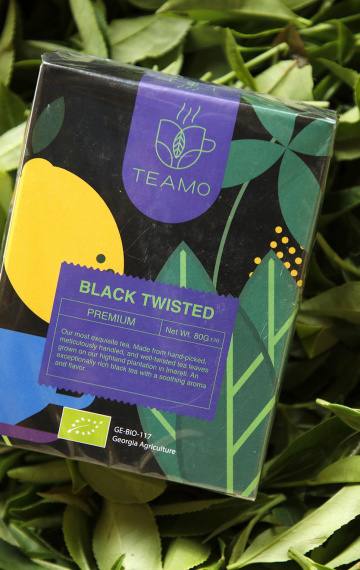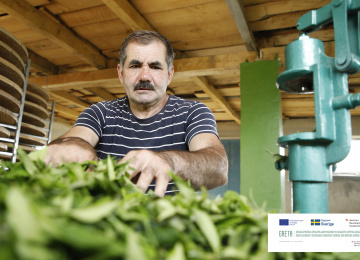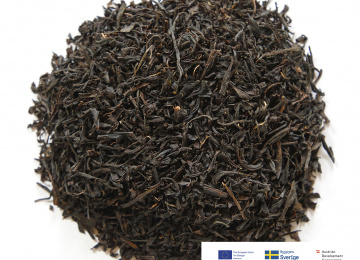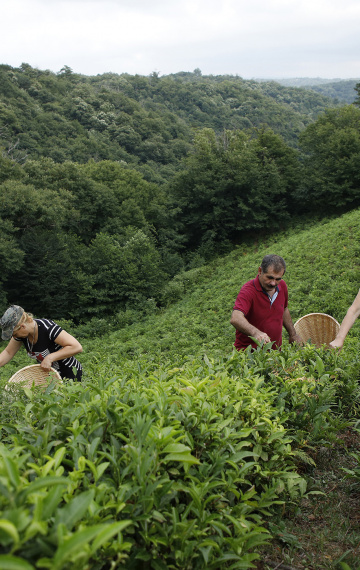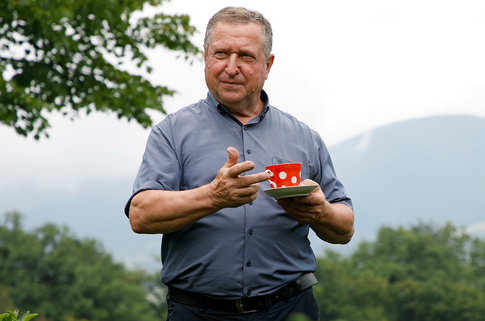
With its unique taste and aromatic qualities, Georgian tea has had an honourable place on the world’s tea map for years. Now that the Georgian government has a programme in place, more and more local entrepreneurs have decided to restore old tea plantations and bolster organic tea production. Some of them lacked not only market connections and experience, they did not even have the necessary equipment. At this critical juncture, an EU/Sweden/Austria co-funded project called GRETA or Green Economy: Sustainable Mountain Tourism and Organic Agriculture offered them the necessary assistance. GRETA project, which is under the EU4Business umbrella, focuses on the enormous potential of Georgia’s mountainous regions, with the aim of improving the business environment and generating new opportunities in mountain tourism and organic agriculture. With GRETA’s support, Georgia’s organic tea producers are preparing not only to enter local markets but to start selling their products internationally.
Georgia’s mountain tea will wow the market
Imagine tea gardens 825 metres above sea level, close to a lake and surrounded by forests and mountains in the highland village of Mandaeti in western Georgia’s Imereti province. This is where Agro Culture+ grows its organic tea with a unique aroma and rich taste that are characteristic of only Georgia’s mountain tea.
AC+ started in 2018 by restoring an abandoned tea plantation with the help of Georgia’s state programme with the goal growing high-quality, organic tea of the kind exclusive to the mountain ecosystem. The region’s harsh climate acts as a major plus: the extremely cold winters protect the shrubs from diseases naturally, and the result is one of the best teas in all of Georgia. From Day One, Agro Culture+ was determined to maintain the high quality and rich taste of the tea, by rejecting pesticides and doing all the work manually.
“You feel better inside, once you know that something you produce contains no toxic chemicals and is healthy,” says Giga Kiparoidze, founder of Agro Culture+.
The organic tea leaves are hand-picked, processed and packaged in a facility that was built with GRETAs support under the EU4Business umbrella. Agro Culture+ was able to also acquire the equipment necessary to increase its production: a tea roller, wilting, drying and packing machines, and a partial subsidy for bio certification.
“GRETA’s support was very important to us,” says Kiparoidze. “You could feel that they not only provide support, but also work to see the final results and help the company achieve its goals. We were not left on our own halfway through.”
Kiparoidze believes that his company is playing an important role in generating jobs locally and helping reduce migration from mountain villages. Today, 10 Georgians work at Agro Culture+’s tea plantation, producing and handling tea leaves throughout the year. In the summertime, 25 Georgians, mostly women, harvest the tea. With the help of its workers, the company expects to harvest 4 tonnes of tea in September 2022. This is enough to start a new chapter in Agro Culture+’s life: sell their product in Georgia and exporting to European markets.
A major Georgian tea maker adds dried fruit to its selection
The highland area of Imereti province and the village of Tkibuli are where nature works in harmony to provide high-quality organic Buetea. During the harvest, tea leaves and cockles are harvested by hand, then dried and twisted, resulting in an exceptionally rich, aromatic and delicious tea.
Okriba, a company founded in 2019, started by rehabilitating over 50 hectares of tea plantations. A year later, they already harvested 14 tonnes of tea. In two years, they also built a tea and fruit processing plant and equipped it according to food safety standards.
“With GRETA’s support under the EU4Business umbrella, we’ve been able to work year-round, instead of just 6 months,” explains Vladimer Dzneladze, co-founder of Okriba. “With the necessary equipment in place, we have also started producing dried fruits, on top of organic tea.”
The company acquired a bubbling washing machine with an ozone generator, a fruit slicing and packaging machine, and other equipment with GRETA assistance. As a result, it has expanded production to organic dried fruits, including apples, plums, pears and others, all delicious fruits harvested in western Georgia.
Okriba’s founders believe that local enterprises slow down migration from Georgia’s mountain villages by providing jobs for locals. More than 100 people work seasonally at their plantation, producing harvests of about 6 tonnes of tea each year. The enterprise’s core staff is 10. With more production and higher demand, the workforce is expected to grow in the future.
Buetea is already well known on the Georgian market and is offered in different forms: from loose tea and teabags to pyramid-shaped bags made of biodegradable materials. The enterprise has also made a deal with a German company that is introducing Georgian tea to French and Dutch markets.
Georgian rehabilitates an abandoned tea plantation with EU support
Tariel Chubinidze was only seven years old when he picked his first tea leaf on a plantation in the village of Kvatsikhe in Imereti province. Then the Soviet Union collapsed and collective farms disappeared along with it. The plantation where Tariel worked as a kid lay abandoned for the next 30 years until he himself decided to give new life to his favourite tea gardens.
When Chubinidze, the director of the Kvatsikhe Tea Bouquet Cooperative, decided to rehabilitate the 13-hectare plantation, people thought he would fail. But he proved everybody wrong. Chubinidze is now getting ready to introduce his Tifli tea to Georgia and the rest of the world.
Chubinidze sees high value in bioproduction and thinks that it wills open doors to international markets. All of Kvatsikhe Tea Bouquet Mountain organic teas are single-estate, grown without harmful fertilizers, and processed without artificial additives, emulsifiers or dyes. The result is an ecologically clean Georgian product that has a distinctive aroma and a unique taste.
The harvest season begins in April and lasts until October. During this period, more than 55 locals work at the plantation daily and pick tea by hand. To get the best products, Kvatsikhe TBC pays enormous attention to the quality of the leaf: to maintain their original properties, tea leaves are picked only at a certain stage of ripeness, processed for 3-5 hours after harvesting, and kept in a highly ventilated storage facility.
Through GRETA’s assistance under the EU4Business, Kvatsikhe Tea Bouquet Cooperative was able to buy the necessary equipment, including tea-picking, withering and rolling machines, as well as a black tea fermentation machine. They also received a partial subsidy for bio certification.
“As a result, we are now able to produce a variety of teas, not just black, but green and white as well,” explains Chubinidze. “And it’s very important for our company’s future development.”
As for the future, the Cooperative needs about 10 tonnes of the final product to be able to export it outside Georgia. Currently, they are at 3.5 t, but Chubinidze is optimistic that the company will get there in 3-4 years. He also plans to offer blueberry, forest berry, herbal and phyto-tea products to tea enthusiasts in Georgia and beyond.
Georgian tea producer prepares for international market
A teacher from Gezruli in upper Imereti province, Koba Shekiladze has always loved his village and wanted to do something to make jobs for locals. In 2016, he began to fulfil his wish by taking over 22 hectares of a tea plantation and cultivating flavourful organic teas, founding the Velvet Tea Cooperative. Today more than 25 locals work at his tea plantation.
Called “Te-amo,” which means “I love you” in Spanish, the name is meant to demonstrate the company’s caring approach to its products. The tea is cultivated, processed and packaged with love in the ecologically clean environment Imereti highlands, 690 metres above sea level. By mixing old and new, Shekiladze gets the best product possible: tea leaves are picked by hand and later processed with modern equipment. From the picking of delicate leaves to drying and packaging, at each stage, the rules of organic production are strictly adhered to. Finished tea products not only have a rich taste and an excellent aroma, but Velvet Tea is marked on the map of the EU Tea Route.
Even more has become possible since Velvet Tea got GRETA support and was able to buy the necessary equipment, including a green tea withering machine, a black tea sorting machine, dryer, roller and packing machines, and more.
“I have not got such support from anybody else in my life, not even my father,” says Shekiladze. “GRETA made it possible to bolster production while maintaining high quality.”
Teamo tea is already sold in Georgia, but its founder has high hopes for international markets. Organic tea has a high price and not everybody in Georgia can afford it. Moreover, Shekiladze’s dreams go beyond tea. He says the area has a great potential for agrotourism. People could come to his plantation, spend the night, cultivate and prepare their tea. It could be a whole other experience that currently does not exist in Georgia.
Georgian focuses on quince leaves and phyto teas
A mechanical engineer from the village of Chalistavi, Shota Kopaliani has a vivid memory from his childhood: his grandmother would gather quince, thread it and store it for the winter. So he set a goal for himself to produce quince leaves with modern technology. He achieved it in 2015. With the help of other tea growers, Kopaliani gathered knowledge, experimented, learned, and finally, started production of what he calls phyto tea.
For the last 6 years, Kopaliani has been picking blackberry, blueberry, quince, azalea, and lime flowers to make aromatic herbal tea with a unique flavour and health benefits. His region is an alpine zone, a pollution-free environment that is also free of pesticides. The products from Kopaliani's enterprise are high quality, something that is ensured by the ecologically clean source materials, organic extraction and green production process.
Needless to say that running his tea production did not come without its challenges. Kopaliani has issues with the transportation of the gathered leaves to the processing facility. And he also needed assistance in processing, as the equipment he owned was not enough to process large amounts of leaves. He was lucky enough to receive GRETA support and all the necessary equipment.
“Such wishes only come true in dreams,” says Kopaliani. “With GRETA assistance, the working process has become far less time-consuming and we’ve finally been able to expand production. We can sort and pack enough product to take our spot on Georgian and international markets as well.”
Today, Kopaliani’s plantation makes up to 800-1000 kg of organic herbal tea a month during the harvest season.For now, the enterprise supplies other companies. Herbal tea produced by Kopaliani is in growing demand due to its excellent quality and ecological purity.

